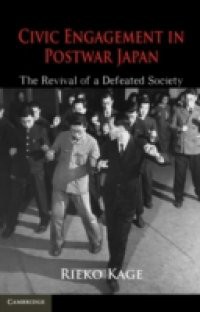Despite reduced incomes, diminished opportunities for education, and the psychological trauma of defeat, Japan experienced a rapid rise in civic engagement in the immediate aftermath of World War II. Why? Civic Engagement in Postwar Japan answers this question with a new general theory of the growth in civic engagement in postwar democracies. It argues that wartime mobilization unintentionally instills civic skills in the citizenry, thus laying the groundwork for a postwar civic engagement boom. Meanwhile, legacies of prewar associational activities shape the costs of association-building and information-gathering, thus affecting the actual extent of the postwar boom. Combining original data collection, rigorous statistical methods, and in-depth historical case analyses, this book illuminates one of the keys to making postwar democracies work.

